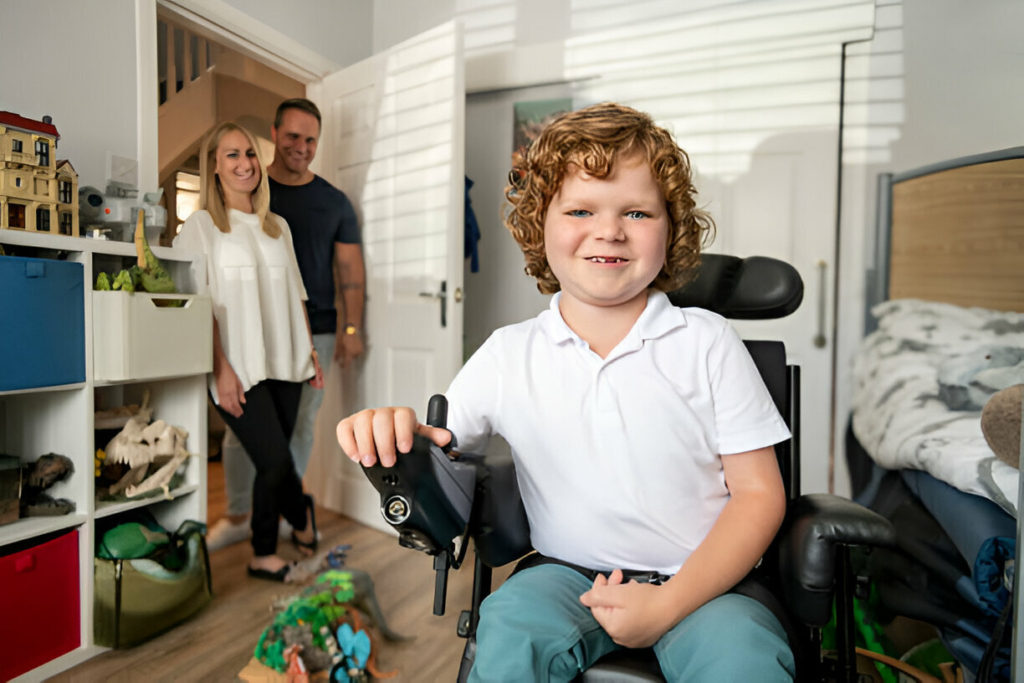Special Needs Dentistry in Clear Lake, Houston

Our experienced team understands the unique challenges faced by families of children with special healthcare needs, and we’re here to make every dental visit as stress-free and comfortable as possible.
Why Special Needs Dentistry Matters
Children with special needs may have physical, developmental, or behavioral challenges that make traditional dental visits stressful. Special needs dentists understand these challenges and create a relaxed environment with a focus on gentle and compassionate care. This allows children to feel safe and comfortable, promoting a positive dental experience.

Why Choose a Pediatric Dentist for Special Needs Children?
Children with special needs often experience anxiety or difficulty during standard dental procedures. Our specially trained pediatric dentists provide a calm, sensory-friendly environment to ease their fears and ensure a positive experience.
We proudly serve families from Clear Lake, Webster, League City, Pasadena, Friendswood, and the greater Houston area.
Specialized Dental Services for Special Needs Children
At Bayoaks Pediatric Dentistry, we offer a full range of customized services for children with special healthcare needs:
- Preventive Care: Gentle dental exams, teeth cleanings, fluoride treatments, and sealants help prevent cavities and protect your child’s smile.

- Restorative Dentistry: We provide fillings, crowns, and extractions with your child’s comfort and cooperation in mind.
- Sedation Dentistry: For children with severe anxiety or sensory sensitivities, we offer safe sedation options, including nitrous oxide and IV sedation.
- Hospital Dentistry: In some cases, we coordinate dental treatment in a hospital setting under general anesthesia for children who cannot be safely treated in a traditional office.
Conditions We Support
We care for children with a wide range of conditions, including:
- Autism Spectrum Disorder (ASD)
- Down Syndrome
- Cerebral Palsy
- Attention Deficit Hyperactivity Disorder (ADHD)
- Learning disabilities (e.g., dyslexia, dysgraphia)
- Speech and language disorders
- Sensory processing disorders
- Genetic and chromosomal disorders (e.g., Fragile X Syndrome, Rett Syndrome)
- Chronic health conditions (e.g., epilepsy, cystic fibrosis, diabetes)
- Physical disabilities (e.g., spina bifida, muscular dystrophy)
Our dentists work closely with parents, pediatricians, and specialists to create a collaborative treatment plan tailored to your child’s needs.
Benefits of Special Needs Dentistry
Choosing a pediatric dentist trained in special needs care offers several important benefits:
- Improved Oral Health: Routine care prevents cavities, infections, and dental emergencies.
- Reduced Anxiety: Our calm, supportive environment helps your child feel at ease.
- Better Quality of Life: Healthy teeth allow your child to eat, speak, and smile confidently.
- Family-Centered Approach: We empower parents with tools, home care tips, and clear communication every step of the way.
First Visit? We’re Here to Help
FAQ: Special Needs Dentistry
Yes, we offer several safe sedation options based on your child’s health and comfort level. We’ll walk you through every option to find what’s best.
Absolutely! In most cases, we welcome and encourage parental involvement.
Yes, we believe in a team-based approach and are happy to collaborate with your child’s pediatrician, therapist, or specialist.
